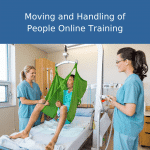Description
Award of License Premises Staff Course (Alcohol License Course)
In this Award for License course (also called Alcohol License Course ), our main aim is to help you understand licensed premises and the important Licensing Act 2003, as well as the relevant laws and rules.
We want to make it easy for everyone to grasp the knowledge and information you need. By taking this course, you’ll learn about places that have permission to sell alcohol and the laws that govern them.
We’ll break it down in a simple way so you can feel confident and knowledgeable about this important subject. Join us on this learning journey and gain the necessary skills to navigate the world of alcohol licensing with ease.
The key points covered in this course are:
- Four licensing objectives
- Licensing Act 2003
- Designated premises supervisor (DPS)
- Proof of age
- Penalties
- Recognising intoxication
- Managing conflict
- Reporting procedures
ALSP Course Outline:
Completion of sufficient training is mandatory for individuals involved in the retail sale or service of alcohol. Our online course is an ideal solution for your staff to showcase the necessary level of training.
Our Award of License course not only fulfills legal requirements but also equips your staff with vital knowledge. They will learn how to make informed decisions regarding sales, including when to refuse a sale.
Additionally, the course covers essential topics such as tobacco and alcohol licenses, the responsibilities of the designated premises supervisor (DPS) in conducting risk assessments, and regulations concerning alcohol consumption on or near the premises. Empower your staff with the expertise they need to excel in their roles and ensure compliance with the law.
1. Four licensing objectives:
These are the four main goals set by the Licensing Act 2003, which are aimed at promoting public safety, preventing crime and disorder, ensuring public nuisance is avoided, and protecting children from harm.
Understanding these objectives will help you align your business practices with the law and create a safe and responsible environment for your customers.
2. Licensing Act 2003:
This is the primary legislation in the United Kingdom that governs the sale and supply of alcohol, the provision of regulated entertainment, and the late-night refreshment industry. Familiarizing yourself with the Licensing Act 2003 is essential for compliance and operating within the legal framework.
3. Designated premises supervisor (DPS):
The DPS is an individual who is designated and responsible for managing and operating a licensed premises on a day-to-day basis. Knowing the role and responsibilities of a DPS is crucial, as they play a vital role in ensuring the premises adhere to licensing regulations and maintain a safe and lawful environment.
4. Proof of age:
Verifying the age of individuals attempting to purchase alcohol is a critical aspect of responsible alcohol service. Understanding how to check and accept valid proof of age documents helps prevent underage sales. It also ensures you keep compliance with the law.
5. Penalties:
Violating licensing laws can result in severe penalties, including hefty fines, license suspension or revocation, and even imprisonment. Being aware of the potential penalties reinforces the importance of complying with licensing regulations and operating responsibly.
6. Recognising intoxication:
Developing the ability to recognize signs of intoxication in customers is crucial for managing alcohol service responsibly. This includes understanding behavioral cues, physical signs, and changes in demeanor that may indicate someone has consumed too much alcohol.
7. Managing conflict:
Working in an environment where alcohol is served can sometimes lead to conflicts or challenging situations. Learning effective techniques for managing conflicts helps maintain a safe and harmonious atmosphere for staff and customers. This will help reduce the risk of incidents escalating into more significant problems.
8. Reporting Procedures:
Learn the importance of timely and accurate reporting of incidents, accidents, and licensing breaches. Equip your staff with the knowledge to document and report effectively. This will ensure a safe and compliant environment while minimizing risks and liabilities.
By developing a deeper understanding of these concepts, you will enhance your ability to operate within the bounds of the law, ensure responsible alcohol service, and create a positive and secure environment for everyone involved.
Award of License Premises Staff Course Learning Outcome
Upon completion of this course, learners will:
- Understand the significance of the four licensing objectives and how to align business practices to promote public safety, prevent crime and disorder, avoid public nuisance, and protect children from harm.
- Demonstrate a comprehensive knowledge of the Licensing Act 2003 and its implications on the sale and supply of alcohol, regulated entertainment, and late-night refreshment.
- Comprehend the role and responsibilities of a designated premises supervisor (DPS) in ensuring compliance with licensing regulations and maintaining a safe environment.
- Effectively verify proof of age, preventing underage sales and ensuring legal compliance in alcohol service.
- Grasp the potential penalties associated with violations of licensing laws, emphasizing the importance of adherence and responsible practices.
- Develop the ability to recognize signs of intoxication in customers, enabling proactive measures to promote responsible alcohol service.
- Acquire practical skills in managing conflicts that may arise in alcohol-serving environments, fostering a safe and harmonious atmosphere for staff and customers.
- Implement proper reporting procedures to promptly and accurately document incidents, accidents, and licensing breaches, contributing to a safe and compliant working environment.
Frequently Asked Question on ALPS Course:
Here are some frequently asked questions:
Course Duration:
The duration to complete this Award of License Premises Staff course and obtain your certificate varies depending on the delivery method, typically ranging from 1 to 2 hours.
Entry and Level:
This Award of License Premises Staff course has no barriers to entry. It is an inclusive awareness course suitable for all individuals.
ALPS Certification:
Upon completion of this Alcohol License course, you have the option to either download your certificate instantly or access it online at a later time.
Accreditation Body:
This Alcohol License course holds CPD accreditation, ensuring that it meets recognized Continuing Professional Development (CPD) guidelines.
WHAT IS A PREMISES LICENSE?
A premises license, also known as a premises certificate. This is an official document issued by the licensing authority in a specific jurisdiction.
It grants permission to carry out specific licensable activities, such as the sale or supply of alcohol, regulated entertainment, or late-night refreshment, on a particular premises.
The premises license outlines the conditions and operating hours under which these activities can take place.
It is typically required for businesses, such as bars, restaurants, pubs, clubs, or other establishments, where licensable activities are conducted.
Having a valid premises license is essential for legal operation and compliance with licensing regulations.
WHO SHOULD TAKE THIS AWARD OF LICENSE PREMISE COURSE?
The Award of License Premises course targets individuals involved in or holding a role in the retail sale or service of alcohol.
This includes, but is not limited to:
- bar staff,
- restaurant servers,
- pub managers,
- club personnel,
- event organizers, and
- any other personnel responsible for alcohol service in licensed premises.
The course is suitable for both new and existing staff members who require training to demonstrate a suitable level of knowledge and competency in:
- responsible alcohol service,
- licensing laws, and
- related regulations.
It is beneficial for individuals seeking to enhance their understanding of the legal requirements and best practices involved in the sale and service of alcohol.
Is ALPS Course the same as Alcohol license course?
Yes, the ALPS Course and the Alcohol License Course refer to the same training program. Both terms are used interchangeably to describe the course designed for individuals working in licensed premises. This enable they attain knowledge and understanding of responsible alcohol service, licensing laws, compliance, and related topics.
Is this course also known as the Personal License course?
No, ALPS (Award for Licensed Premises Staff) and Personal License Course are not the same.
ALPS focuses on training staff members who work in licensed premises, equipping them with the necessary knowledge and skills to understand their responsibilities. This ensures they comply with licensing regulations, and provide responsible alcohol service.
On the other hand, the Personal License Course specifically pertains to obtaining a personal license. This course is a requirement for individuals who wish to become designated premises supervisors (DPS). Also, for those who hold a management position in a licensed premises.
This course covers the legal responsibilities of a
- personal license holder,
- licensing laws,
- operating schedules, and
- the role of the DPS in ensuring compliance.
While both courses are relevant to the alcohol licensing industry, they target different aspects.
ALPS concentrates on staff training, while the Personal License Course focuses on obtaining a personal license for individuals in managerial roles.






